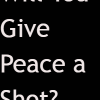
The infection from the unhealed wounds on her body had begun to spread. The old lady shook her head, her lips drawn into a thin line while the wrinkles on her face dug deeper into her skin with sadness. Flies flitted about lazily, landing on the limp form on the floor. The old lady wasn’t sure where this girl was from, or what she was doing in the slum – much less in this state. Poor as she was, the old lady couldn’t leave her in that state.
Bit by bit, she watched the girl sink while her soul departed, once and for all.
*****
You just smile at me benevolently – do you want to make conversation at all? Ah. You’re nodding. Okay. Let’s see… what can I talk about?
Got it. You want to know what I do?
Well.
I wouldn’t know what to call myself or the work I do. I don’t even know how it came to be. Sitting slumped over, with my head bent against my file – my file filled with copies of my resume that never got distributed anyway – my cell phone came alive as the threateningly ominous phrase ‘Unknown Number’ pierced into my eyes. The voice on the other end didn’t strike me as strange at all – it was the kind of a voice that one might associate with a kind patriarch: an old, wizened and well-meaning man. He asked me if I needed a job. I needed one – I needed one badly – leaving home after being unemployed for years, lying to my family that I was going to make money from the coming month onwards and then having taken on the added obligation of wiring some of it back home were enough reasons to back that need up. The vicissitudes of life made me turn to lies: the irony of that line never escapes me, especially after what life taught me later.
I told him I needed a job.
He said he had one, one that needed a person with a sense of deep commitment and loyalty.
I falsely promised both qualities: just the kind of falseness that I promised in my resume. Just the kind of falseness the many companies promised me with – of getting back if there was a vacancy.
He laughed, a high pitched laugh that seemed to resonate in both my ears, as if he was right behind me. What was I to know, maybe he was or maybe he wasn’t. You look back on time and you think you know exactly how everything was: but it really is just a shadow of what was. He told me that I would receive information on what I had to do. Backing out was not an option. I would be paid generously, and I was not to ask questions. I would start with the turn of the coming month.
How’s that for a 27-year-old girl, I thought to myself drily. It all sounded like a seedy contract killer’s job.
And that’s exactly what it was.
You see, I still remember my first assignment very clearly. It was raining that morning. I spent some time looking out of the window of my one-room apartment, watching as the dancing raindrops come alive in a phantasmagoria of sorts. They slanted into the air, slicing time and space with their lazy touch. Lone orange leaves dislodged themselves from once-lush trees, gracefully spiralling downwards before they merged with the unguent remains of vehicular oil, grease and mud. Nature could run its soliloquy even if no one was watching, even if everything was wrong in anyone’s world. In my cavalier attitude to everything in life, I hadn’t come close to realising that the new month had rolled in. I lazily stomped about my unkempt room and chanced on a white sheet of paper that was clearly sent sliding under the door. I wasn’t one to care for fliers, but this was as bleak as it could be. It amused me to know that companies had marketing aspirations as low as my career aspirations. The sheet had a name of a place, a photograph of a hapless looking man seemingly in his forties and a single line telling me that I had to stop by at the place and ask for salted peanuts, and share them with the person so named. The other side of the sheet promised me a sum in five digits. In my love for the money, it didn’t even matter to me that I hadn’t shared my address with this man, but he had reached me just fine. Strange, I know that’s what you’re thinking this is. But hold on. Before you judge me, let me tell you that I was under a very, very significant burden of penury. I needed money. And I wasn’t indulging in anything outside the law – I wasn’t selling my body or trafficking anything or anyone – so I wasn’t really wrong.
Or so I thought.
I went there that day, dressed pleasantly in one of the many outfits I had saved over the years for my first day at work. I asked for the peanuts, paid for them, and looked around for the man. I found his table, and made my way to him. He let me sit down beside him after looking at me curiously. I opened the pack and shared the peanuts with him. He looked at me wondering at the uncanny addition to the decoupage of an otherwise impolite world in the form of my kindness – but took some, nevertheless. He chewed on them absently, and in a few minutes, he collapsed, gasping and flailing until he was motionless. They called an ambulance, and he was pronounced dead.
My heart was in my throat, my mind raced. I was shocked beyond my wits; the ecru of my values soon had ugly murky shades staining it. I had killed a man. I shuffled out of the place, and once I was at a safe distance, I ran back home. I was shaking from head to toe, my body convulsing against my control. The door wouldn’t budge easily as I unlocked it – until I pushed hard and went inside to see what was blocking it: a pile of money, arranged in a pyramid. I stopped in my tracks, absolutely unsure of what to do. This was big, big money.
And so, you ask? I sold out. I completely sold out.
This could have been an accident, right? Just an accident. I did what I was told – and that was it, right?
Wrong.
I didn’t know where to contact him. So I waited until he would call me again. A week passed, there wasn’t anything from his side. Another week went by, as I lounged about lazily in the house, forgetting the shock of the last incident – but indulging in my torpor, anyway. Out of the blue, he called me – this time, I was in the shower when he called – and funnily enough, the rings never seemed to end. Dripping wet, my hair sodden and my nose forming icicles before the drops crashed onto the floor, I answered the call, recognising him by the Unknown Number sign. The wizened voice asked me if I was willing to continue working for him: this was my last chance to get out of it. I thought for a moment: my family was happy to see money come their way. I didn’t live on scrappy cheap food. I was no longer dressing like a hobo. I had a television. My room finally looked like a human inhabited it. I agreed.
Two days later, I had my next assignment. This time, a single sheet of paper was left tucked under the window, jammed into place by the panel. Wresting it from the window’s grip, I learned that this time, I had to pay an ailing businessman a visit at a hospital in the city. I wasn’t to say anything: just hold his hand and talk to him. No questions asked. For this, I was to be double the amount my first payment. My eyes were moons when I read the figure promised.
The next morning, when I went to the hospital, I held his hand as I was told. I began to make small talk. He removed his oxygen mask to ask me something, his eyes questioning – and even before the nurse could fasten it in place again, he had died.
The connection was too much to take. Was I being made a passive killer in some kind of a hate game? Was I a pawn in a bigger brawl – one that took on filthy overtones of murder that looked like accidents?
I had a list of questions to ask for when he called next. I would threaten to take him to the police. I would fight him. You might ask how I had this new-found conscience in my stride
But the call never came. Six months passed, and I was willing to forgive, forget and beg for a new job somewhere. Anywhere. Penury had visited again. You ask if I saved the money – no, I didn’t. I had to keep sending some home every month, remember? It helped nothing that by now, I was used to eating proper food – enough for my stomach to make demands, at least.
All I had was his next assignment for me: to turn on the mains in the mansion down the street. I was not to back out: because I lost my chance. And this time – the manipulative bastard that he turned out to be – he offered me the earnings of a lifetime, knowing fully well that six months of no work had run my bank balance dry. I meandered into the unmanned gates and pressed the button. Within seconds, screams ensued from within. Whoever was working on whatever electrical appliance inside was dead.
This time, I didn’t look back. It didn’t matter. I wasn’t in two minds anymore. I needed money. And I would get it.
Time flew: between blowing my money on everything I didn’t need, to sending some home, occasionally landing up dead drunk in someone’s apartment, sleeping around, indulging in every vice I could lay my hands on, I was also a regular catalyst in a flurry of accidental murders. My rap sheet – if I had one, of course – would include a young man who skidded off the street to avoid hitting me; a teenage boy who ran headlong into a truck as she attempted to catch a ball I threw; a young woman who took the out-of-order lift on my advise; an asthmatic in need of a nebuliser but got a can of pepper spray instead; a girl with an allergy to chocolate who had a small piece of it slipped into her coffee. They didn’t matter to me: these ludicrous puppets that stood in a row while I romped about in the fair, knocking at them with the dreams of a grand prize in mind. And knock them, I did, by all means. With all my heart, with all the force I could muster.
You must wonder at my lack of conscience. You must think that I am cruel, heartless and care nothing. Maybe I am all of that, maybe not. But here’s the fact: whatever you do, you do. You are but an instrument in life: as long as you don’t have the intention to destroy. That makes all the difference: heck, even the law thinks that. If you don’t intend to kill, you’re no murderer; you’re just guilty of culpable homicide. And here, I did nothing: they were all accidents: the miscalculations of the human mind that forced costly errors that forced costly consequences.
*****
The old woman fanned the girl’s body: it was quite the corpse except for the occasional draft as she inhaled. It was strange how she was attached to this beaten form: the meek remnants of what might have even been a person she may have abhorred altogether. The girl might have had a bright future, she was so young. The old woman squat in the corner, watching the girl mutter incoherently.
*****
The last time he wrote to me, I was supposed to go out into the city's parade and stand in the way of a motorised float. The money had come in along with his message: a resounding sum that could settle me for life. Jubilant, I sent home almost all of it: just a meagre something remained so I could enjoy the evening. I didn't know why I did that, I didn't know who I had to stop, or why it was a float that I had to take on: but all of it barely mattered. I was late, making it to the parade after a grand chunk of it had ended. I had to run a great deal before I found a spot, just at the mouth of a slum. The float seemed to have gathered speed by then, and I lunged in its path.
It crashed into me, and I flew in the air. The wind gathered in my ears, and I spiralled like a lone, autumn leaf.
You listen to me patiently. I wonder who you are, or where we are. My body hurts, my mind is an ocean of questions. There is a lot I want to ask, but I want just one thing most: to know who I worked for, to know why I did what I did. You smile at me – why is that? You speak to me – and that's when I hear it.
Your voice.
The wizened old man.
It is you, isn't it?
Come, you say, holding out your hand. It is time.
*****
The transition is complete. The old lady sees the girl shudder one last time. She gets up to leave the shed. Tomorrow, the corpse will be buried.
*******
I'm scared to get up, my body hurts. But when I do, it feels light. As I walk beside you, I turn behind and see me lying there: my corpse, my body.
And that is when I realise who I was working for.
The vicissitudes of Life had made me turn to Death.
About the Author







Comments